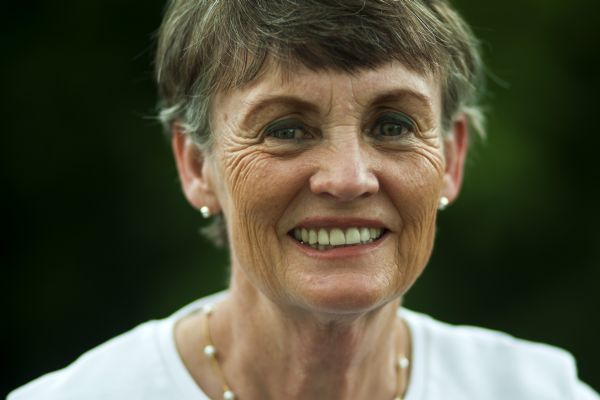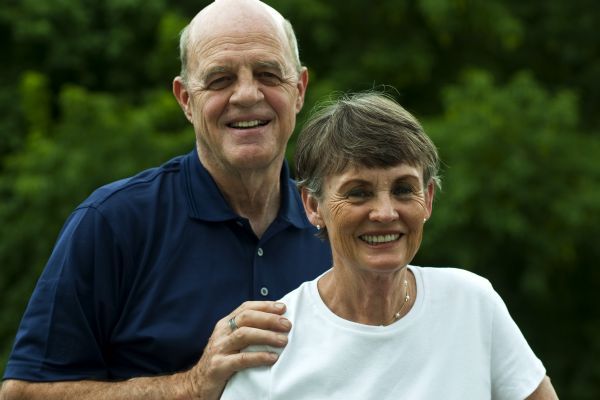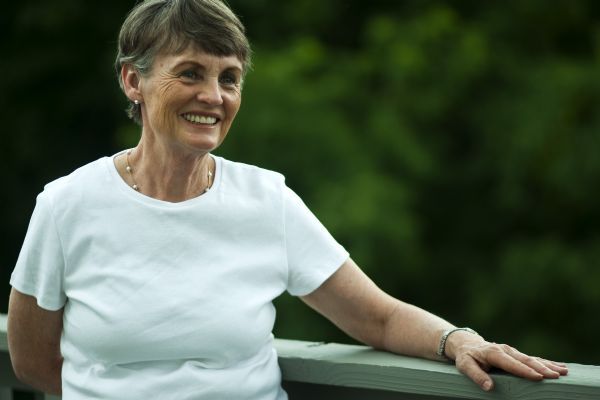This is an archived article that was published on sltrib.com in 2010, and information in the article may be outdated. It is provided only for personal research purposes and may not be reprinted.
Kathryn Romney is practicing "the art of losing," accepting "the fluster" of lost dates, names and door keys as being "not too hard to master."
That's how the retired English teacher describes Alzheimer's disease, borrowing from a poem by a favorite 20th century American poet. "It was an incredible shock, disastrous," said the 68-year-old of her diagnosis nearly a year ago. "But there is life, a lot of life, after diagnosis."
It's a message Romney sometimes feels like shouting to family and friends and that she will carry next month to a "town hall" meeting of the National Alzheimer's Association Early-Stage Advisory Group in Chicago.
She is the sole Utah representative, one of 15 nationally, chosen to give voice to the diagnostic, therapeutic and emotional needs of an emerging population of people in the early stages of dementia.
An estimated 32,000 Utahns have Alzheimer's disease, a population that on a per capita basis exceeds all states except Colorado. The number is expected to more than double by 2025.
Of today's residents living with the disease, about half are in the early stages: impaired, but not helpless, and eager to help raise awareness, improve treatment and find a cure.
"It's given me a purpose," said Romney of joining the advisory group. "It's comforting to hear I'm not alone, but it's not about pity poor me. We are here to advocate for the demise of this disease."
Alzheimer's is a progressive disease of the brain that causes memory loss and eventually death. There is no cure.
But treatments exist to ease symptoms and help patients maintain a level of independence for longer, buying them time and upping their chances for participating in clinical trials, said Jack Jenks, executive director of the Utah chapter of the Alzheimer's Association. "The decline can take decades, as long as 20 years."
Research into early diagnosis is one of the most promising areas of Alzheimer's science, Jenks said. The hope is to target the disease in its earliest stages, before irreversible brain damage happens.
Diagnostics carry the risk of false positives, and some patients prefer to be spared the emotional trauma if no cure exists, acknowledges Nick Zullo, a program director and geriatric counselor with the Utah chapter. "But while we wait for medical breakthroughs, we need to work on getting nonpharmacological tools in place."
Those include behavioral counseling, brain fitness workshops and coaching caregivers on how to recognize stresses and avoid triggers -- areas ripe for input from advocates like Romney, he said.
Numerous studies have suggested loneliness and social isolation aggravate the disease.
That, and being bossed around, silenced and prematurely excluded from decision making, are among the chief complaints of those in the early stage of Alzheimer's.
"As soon as you mention the 'A-word,' people don't invite you over anymore," said Romney, gazing at the skyline from the back porch of her East Millcreek home.
Retreating wasn't an option for Romney, who was on a mission for the LDS Church in Belgium with her husband, Leonard Romney, when her struggles recalling important dates and operating a computer prompted them to return home and seek medical help.
"I thought she just wasn't trying enough," laments Leonard Romney.
She went public with her diagnosis during a spontaneous speech at a church service, a disclosure that gave rise to the husband-and-wife team's involvement with the Alzheimer's Association.
Leonard Romney, a former vice president of facilities management at the University of Utah and first cousin of former Massachusetts Gov. Mitt Romney, is using his connections to help raise money for the association.
Romney's short-term memory is patchy. She has trouble with numbers and her attention wanders. But she can still reason, communicate and go about her life much as always.
She is involved in a clinical drug trial at the University of Utah. There's lots of traveling to be done, and graduations and birthday parties for grandchildren to attend.
Asked what she fears most, she said, "losing my husband and children."
But reasoning "everybody dies of something," the career school teacher has devoted this year, maybe the next five, to teaching others what it means to live with dementia.
"It's liberating, this window of opportunity," she said.
by Elizabeth Bishop
The art of losing isn't hard to master;
so many things seem filled with the intent
to be lost that their loss is no disaster.
Lose something every day. Accept the fluster
of lost door keys, the hour badly spent.
The art of losing isn't hard to master.
Then practice losing farther, losing faster:
places, and names, and where it was you meant
to travel. None of these will bring disaster.
lost my mother's watch. And look! my last, or
next -to-last, of three loved houses went.
The art of losing isn't hard to master.
lost two cities, lovely ones. And, vaster,
some realms I owned, two rivers, a continent.
miss them, but it wasn't a disaster.
--Even losing you (the joking voice, a gesture
love) I shan't have lied. It's evident
the art of losing's not too hard to master
though it may look like (Write it!) a disaster.
A progressive disease of the brain that causes memory loss and problems with thinking and behavior. Affecting 5.3 million Americans, it is the seventh-leading cause of death in the United States.
In 2008, patients in the early stage of the disease developed these "Principles for a Dignified Diagnosis."
Talk to me directly, the person with dementia.
Tell the truth
Test early
Take my concerns seriously, regardless of my age.
Deliver the news in plain but sensitive language.
Give me tools for living with this disease.
Recognize that I am an individual and the way I experience this disease is unique.
Alzheimer's is a journey, not a destination. Treatment doesn't end with the writing of a prescription.
Source: Alzheimer's Association







